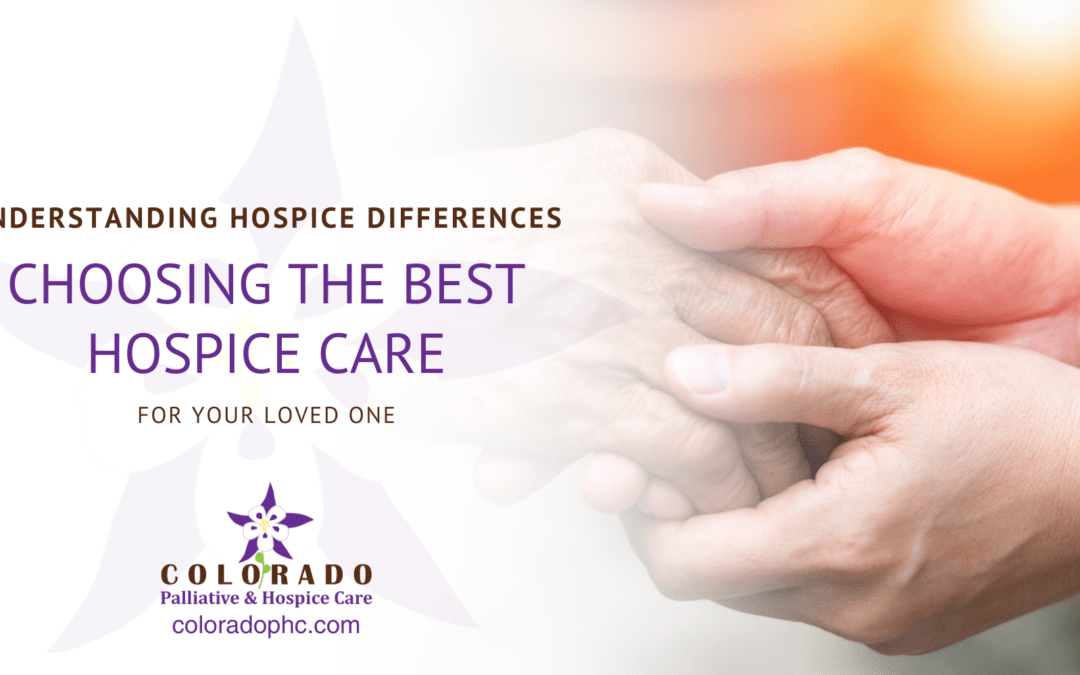Making decisions about hospice care can be overwhelming and emotional. You want to ensure your loved one receives the best care and support during their end-of-life journey.
With numerous hospices available, it’s important to understand the differences between them in order to make an informed decision. Below, we explore key factors to consider when choosing the best hospice care for your loved one, to provide you with guidance and reassurance during this challenging time.
1. Expert Insights: Understanding the Diverse Approaches in Hospice Care
Hospice care providers have unique philosophies, approaches, and specializations. Gathering information and understanding the diverse approaches to hospice care is essential to make an informed decision.
Some hospices focus on specialized care for specific conditions like cancer or dementia. In contrast, others provide comprehensive care for a range of terminal illnesses. By considering your loved one’s specific needs and condition, you can identify a hospice that aligns with their unique requirements.
2. Evaluating Hospice Accreditation and Certification: Ensuring Quality Care
When choosing a hospice, assessing the accreditation and certification of potential providers is crucial. Accreditation ensures that the hospice meets recognized standards of quality and excellence in care.
The Joint Commission, the Community Health Accreditation Program (CHAP), and Accreditation Commission for Health Care (ACHC) are three well-respected organizations that offer accreditation to hospices. Additionally, certification from Medicare or Medicaid can provide reassurance of the hospice’s adherence to strict quality guidelines.
3. Communication and Collaboration: Establishing a Supportive Relationship
Hospice care is a journey that requires open and effective communication between the care team, your loved one, and family members. When evaluating hospice providers, consider their communication style, available emotional support and counseling resources, and their willingness to involve you in the care plan. A strong and supportive relationship with the hospice care team can enhance the overall experience for both the patient and their family.
4. Care Setting: Finding the Right Environment for Comfort and Support
Hospice care can be provided in various settings, including the patient’s home, a dedicated hospice facility, or a nursing facility. Each option has its benefits and considerations. Home-based care allows your loved one to remain in familiar surroundings, while a hospice facility provides round-the-clock specialized care and support. Assess your loved one’s needs, preferences, and the level of care required when determining the most suitable setting.
5. Additional Services and Support: Enriching the Hospice Experience
Beyond providing medical care, hospices often offer additional services and support to enhance patients’ overall quality of life. These can include music therapy, pet therapy, spiritual care, and assistance with practical matters such as navigating financial issues or coordinating support from community resources. When evaluating hospice providers, inquire about their range of services and how they align with your loved one’s needs and interests.
Some Questions to Ask
When it comes to choosing hospice care, we understand the importance of making a decision that brings comfort and peace to your loved one. In your search for the right hospice care, you and your loved ones may find the unique aspects of each hospice particularly meaningful to you. To assist you in this journey, here are some questions to consider:
- What level of experience does the hospice have in providing care to patients with similar needs?
- How does the hospice assess and address a patient’s physical comfort and pain management?
- What types of emotional and psychosocial support do they offer to the patient and their family?
- How does the hospice involve the patient and their family in developing the care plan?
- What additional services or therapies does the hospice provide to enhance the quality of life for the patient?
- How does the hospice handle emergencies or after-hours calls?
- What bereavement support does the hospice offer to the patient’s family after their passing?
- How does the hospice involve spiritual or religious guidance, if desired by the patient and family?
- Does the hospice collaborate with other healthcare professionals involved in the patient’s care?
- Can the hospice provide references or testimonials from current or past patients and their families?
Choosing the best hospice care for your loved one is a deeply personal and important decision. You can make a well-informed choice by understanding the differences between hospices and considering factors such as their approach to care, accreditation and certification, communication style, care setting, and additional services.
You are not alone in this journey. Hospice care professionals are here to guide, support, and provide comfort during this challenging time. Trust yourself, ask questions, and rely on your intuition to choose the hospice care that best aligns with the physical, emotional, and spiritual needs of your loved one.
Need help? Contact us at Denver (303) 727-5709, Front Range (720) 545-0800, or Colorado Springs (719) 419-5595.

